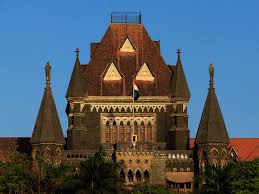Understanding Civil Court Patna and Its Recent Developments

Introduction
The Civil Court in Patna is a crucial institution in the Indian judiciary, providing a platform for resolving civil disputes and upholding legal rights. It plays a significant role in the administration of justice within Bihar, catering to a wide range of civil matters including property disputes, contract issues, and family law cases. Its functionality impacts thousands of citizens, making it essential to understand its operations and recent developments.
Current Developments in Civil Court Patna
In recent months, the Civil Court Patna has seen multiple initiatives aimed at enhancing efficiency and accessibility. After a review of its processes, the court has implemented digital filing systems which allow litigants to submit documents online, reducing the need for physical appearances and paperwork. This transition aligns with the broader goal of the Indian government to digitize legal processes throughout the country.
Additionally, the COVID-19 pandemic prompted the court to introduce virtual hearings, allowing cases to be conducted remotely. This has not only maintained the continuity of legal proceedings but has also made justice more accessible for those unable to attend in person due to health concerns or travel restrictions.
Case Backlog Management
One of the most pressing challenges for the Civil Court Patna is the growing backlog of cases, a common issue faced by courts across India. However, the court administration has recently adopted new strategies, such as increasing the number of sitting days and encouraging mediation and alternative dispute resolution mechanisms. Reports indicate that these measures have led to faster case disposal rates, thus alleviating some of the pressure on the judicial system.
Community Engagement Initiatives
The Civil Court Patna has also engaged in community outreach programs aimed at educating the public about their legal rights and the workings of the court system. These initiatives are designed to empower citizens, making them more aware of how to seek justice within the legal framework. Workshops and seminars are frequently conducted to demystify the legal process and encourage people to utilize the court for conflict resolution.
Conclusion
The Civil Court Patna stands as a vital institution in India’s legal landscape, making strides toward improved efficiency and community engagement. As ongoing initiatives to digitize operations and manage case backlogs continue to evolve, it is anticipated that the court will enhance its ability to deliver justice promptly and fairly. For residents of Bihar, understanding the functions and updates of the Civil Court Patna will remain essential, particularly as the legal landscape changes and adapts to new challenges and technologies.








